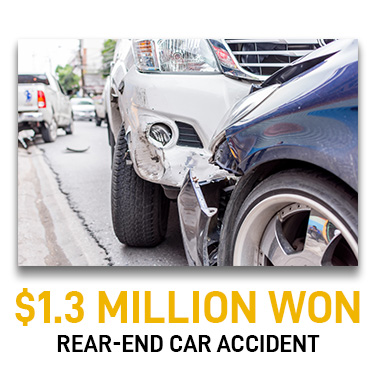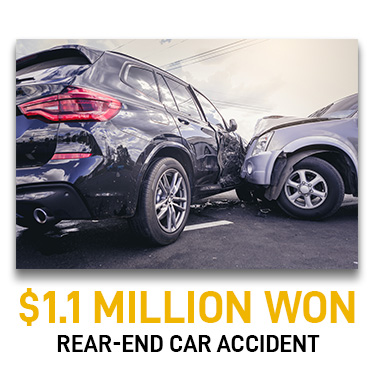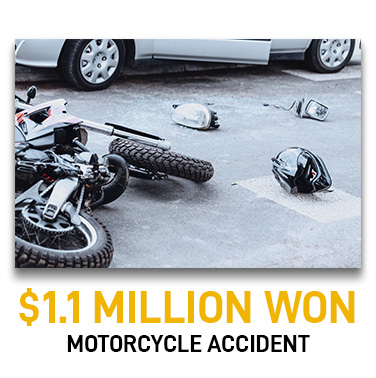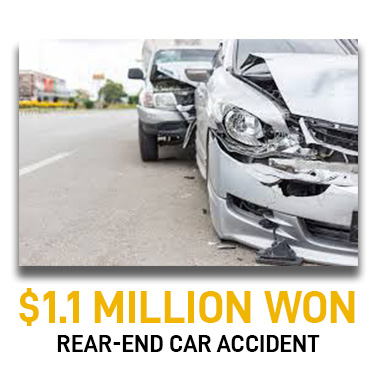Getting into a car accident is a jarring, stressful, and confusing experience. In the chaos of the moment, it can be nearly impossible to think clearly, let alone remember the crucial steps needed to protect your health and your potential legal claim.
Yet, the minutes and hours immediately following a crash are arguably the most important. The actions you take—or fail to take—at the scene can have a massive impact on your ability to seek full and fair compensation for your injuries and damages.
If you are involved in a collision, stop and take a breath. Then, follow this essential, step-by-step guide from the personal injury attorneys at San Diego Personal Injury Attorneys.
Over $500 Million Won Over 25 years of experience
Step 1: Secure the Scene and Prioritize Safety
Your safety, and the safety of everyone involved, must be the top priority. Everything else can wait for a few moments.
A. Pull Over Safely
As soon as the accident occurs, if your vehicle is drivable, pull over somewhere safe to stop. This means getting out of the flow of traffic, ideally onto a shoulder, a nearby parking lot, or a safe side street. This prevents further accidents and allows you to communicate with the other party without putting yourself in danger.
B. Assess Injuries and Call Emergency Services
Check yourself and your passengers for injuries. If anyone is visibly bleeding, unconscious, or complaining of severe pain, call 911 immediately. Never hesitate to call for medical assistance.
C. Documentation is Your Shield
Once safe, immediately use your smartphone to begin documenting the scene. This evidence is critical because the scene will change the moment the cars are towed.
- Take Photos of Both Vehicles: Get close-up shots of all damage points, as well as medium and long-distance shots that show the overall condition of both cars.
- Capture the Scene: Take photos showing the position of the vehicles relative to traffic lanes, street signs, traffic lights, skid marks, and any debris.
Thorough, immediate documentation will prevent the other party (or their insurance company) from later claiming the damage was pre-existing or minor.




Step 2: The Critical Information Exchange
Under no circumstances should you leave the scene without attempting to gather the following four crucial pieces of information from the other driver:
- Driver’s License: The full name, address, and license number of the driver.
- Insurance Information: The name of their insurance company and their policy number.
- Vehicle Registration: The vehicle’s license plate number, make, model, and year.
- Contact Information: A current phone number and email address for the other party.
What if the Other Party Won't Comply?
This happens more often than you might think, especially if the other party is worried about the consequences of the accident. If the other party refuses to exchange information or attempts to leave, call the police immediately. Inform the dispatcher that the other party is uncooperative. The police will usually come out to help facilitate the exchange of required information.

Step 3: Dealing with Law Enforcement
Many drivers assume that an officer will automatically write a full police report detailing who was at fault. This is not always the case. Understanding the difference between a police report and a call log is essential.
The Police Report vs. The Call Log
- Full Police Report: Typically, police will only generate a full, official report with a detailed narrative and a finding of fault if a party is seriously injured and needs to be taken from the scene by ambulance.
- Call Log/Incident Report: If the police come out but no one is transported by ambulance, they will often only create an internal call log or incident record.
Even without a full report, this log is important! It proves the date, time, and location of the incident, and contains the names and contact information of the parties involved. Your attorney can formally order this call log from the police department to aid in your claim.
Attorney Deon Goldschmidt
With years of experience, Deon Goldschmidt, Esq., has been practicing personal injury law for over 2 decades. He has successfully helped hundreds of accident victims claim damages from their injuries. In addition, Mr. Goldschmidt has gained extensive experience in the field of medical malpractice.
Step 4: Prioritize Your Health and Seek Medical Attention
Even if you feel “fine” after the adrenaline wears off, you must seek medical attention if you suspect you are injured. Symptoms of injuries like whiplash, concussions, and soft tissue damage often take hours or even days to fully manifest.
Do Not Wait: Go to the Emergency Room (ER), an Urgent Care clinic, or make an immediate appointment with your Primary Care Physician.
Create a Medical Record: Seeking immediate care is vital not only for your recovery but also for your legal claim. Insurance companies will always try to argue that any delay in treatment means your injuries were not serious or were not caused by the crash. A gap in treatment gives them ammunition to deny or severely reduce your compensation.
Step 5: Protect Your Claim—Why You Need a Lawyer
This is, by far, the most critical step after seeking medical care. You may think you can handle the insurance process yourself, but that is rarely a good idea.
The Insurance Company's Only Goal
Remember this fundamental truth: The job of the insurance company—whether it’s yours or the other driver’s—is to pay as little as possible.
They are a business, and every part of the claim process, from the initial car damage assessment to the injury portion, is designed to minimize their financial output. They are not on your side.
Why You Should Never Talk to the Adjuster Alone
If you speak directly to an insurance adjuster, they will often attempt to get you to provide a recorded statement. They are listening for you to say something they can use against you later, such as:
"I’m fine."
"I might have been distracted."
"I didn't think I was hurt at the time."
These statements can be twisted to devalue or deny your personal injury claim.
How a Personal Injury Attorney Helps
By hiring an attorney, you effectively put a shield between yourself and the insurance companies. We handle all communications, protecting you from making costly mistakes.
Furthermore, we assist with:
Managing all claims and paperwork.
Connecting you with specialized doctors (chiropractors, orthopedic specialists, etc.) who understand car accident injuries, especially after you've sought initial emergency treatment. We ensure you get the appropriate and consistent care needed for recovery.
Building the strongest possible case by gathering police logs, witness statements, and medical documentation.
When the insurance company knows you have experienced legal representation, they are far more likely to take your case seriously.
If You’ve Been Hurt or Injured, Call Today
If you or a loved one has been involved in an accident and suffered an injury, do not navigate the complicated aftermath alone. Let the insurance companies deal with us, so you can focus on your recovery.
The team at San Diego Personal Injury Attorneys is ready to discuss the nature of your problem, walk you through the process, and assist you in securing the full compensation you deserve.
